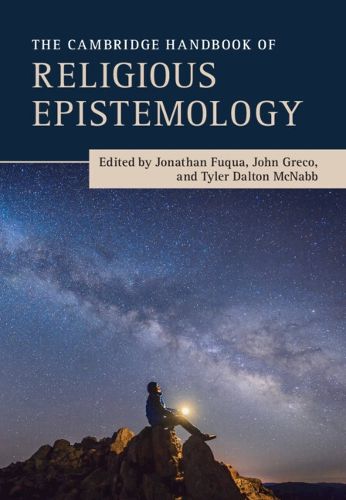Readings Newsletter
Become a Readings Member to make your shopping experience even easier.
Sign in or sign up for free!
You’re not far away from qualifying for FREE standard shipping within Australia
You’ve qualified for FREE standard shipping within Australia
The cart is loading…






The Cambridge Handbook of Religious Epistemology, the first to appear on the topic, introduces the current state of religious epistemology and provides a discussion of fundamental topics related to the epistemology of religious belief. Its wide-ranging chapters not only survey fundamental topics, but also develop non-traditional epistemic theories and explore the religious epistemology endorsed by non-Western traditions. In the first section, Faith and Rationality, readers will find new essays on Reformed epistemology, skepticism and religious belief, and on the nature of evidence with respect to religious belief. The rich second section, Religious Traditions, contains chapters on Hindu, Buddhist, Islamic, Jewish, and Christian epistemologies. The final section, New Directions, contains chapters ranging from applying disjunctivism and knowledge-first approaches to religious belief, to surveying responses to debunking arguments. Comprehensive and accessible, this Handbook will advance the field for years to come.
$9.00 standard shipping within Australia
FREE standard shipping within Australia for orders over $100.00
Express & International shipping calculated at checkout
The Cambridge Handbook of Religious Epistemology, the first to appear on the topic, introduces the current state of religious epistemology and provides a discussion of fundamental topics related to the epistemology of religious belief. Its wide-ranging chapters not only survey fundamental topics, but also develop non-traditional epistemic theories and explore the religious epistemology endorsed by non-Western traditions. In the first section, Faith and Rationality, readers will find new essays on Reformed epistemology, skepticism and religious belief, and on the nature of evidence with respect to religious belief. The rich second section, Religious Traditions, contains chapters on Hindu, Buddhist, Islamic, Jewish, and Christian epistemologies. The final section, New Directions, contains chapters ranging from applying disjunctivism and knowledge-first approaches to religious belief, to surveying responses to debunking arguments. Comprehensive and accessible, this Handbook will advance the field for years to come.